For previous chapters click here
Manu National Park, Peru 1998
Camp was a small clearing in the forest, close to the river, a fifteen-minute walk from the lake. I slept in a small burgundy-coloured dome tent that had started to smell horribly within the first few days as my sheets and clothes began to rot, and then smelled worse after Mike decided it would be funny to wake me one morning by pissing down the side of it. There was a large mess tent where we could eat, relax and escape the mosquitos, and a kitchen tent, constructed from a large blue plastic tarpaulin strung in a roof pitch over a frame of cecropia trunks, where our chef Alfredo – a tall, wiry man in his forties with the face of a crook – worked his magic. He’d cook up such delights as rice and pasta or boiled potatoes and pasta, which he’d serve with bluster and pride, and which I’d swallow with the fake enthusiasm of a cheap prostitute. Occasionally Alfredo would push the boat out and make a kind of tinned tuna frittata thing, which tasted of foam board and smelled apalling; but it was protein and I’d like to say edible, but perhaps ‘necessary’ would be a more appropriate term.
Alfredo was perpetually stoned, and would spend his time chopping onions and listening to his crackly radio. One lunchtime he appeared in front of me while I was reading, cradling his wizened little cock with both hands. I recoiled slightly as he presented it to me.
‘Charlie, mira,’ he said pathetically, offering me a better view.
‘What the fuck?’ I begged. He stood before me sheepishly, with his shorts around his knees. ‘Walter,’ I shouted, ‘can you come and see what’s going on?’
Walter appeared out of the mess tent, quite bemused, and the two talked while Walter inspected Alfredo’s penis, his fingers hover-handing the offending appendage.
‘He has a problem with his penis’ Walter explained.
‘I suspect it’s from that prostitute he slept with in Cusco,’ I said.
Walter asked Alfredo if this was the case and he nodded. Alfredo had taken me and Mike out to ‘Club Secretos’ the night before we’d headed into the Amazon. He’d tried to set us both up with girls, but we’d politely extracted ourselves from the situation. Walter told Alfredo to put it away and I firmly instructed him to wash his hands before going back to his onions, then fetched him a concoction of antibiotics from the first-aid kit, which we fed to him for the next few days until his little fella was feeling better.
Our toilet was a long drop with a structure of poles banged into the earth to make a shield for privacy. It worked well for a week or so, until it became an unbearable stinking pile of shit that, when you dared to look in, writhed with a million maggots. Sitting in it was horrific. Still, I got to amuse myself by swatting the clouds of persistent, hungry mosquitos from my wedding tackle. Eventually the smell became so offensive that Walter poured petrol in the latrine to kill the maggots, resulting in a horrendous, heady, stinking, toxic soup, which was actually worse.
Our days very quickly became cemented in routine. We’d follow the otters every daylight hour and then get back to camp after dark to eat, drink beer, smoke cigarettes and play cards. Sometimes I’d astound the camp staff, none of whom could speak a word of English, with my card tricks, which were all based on me asking them to pick a card, and then Mike looking over their shoulder and telling me openly in English the card they’d picked, which I’d then perform elaborate reveals with. They never did figure it out.
One day a small man appeared in our camp. He wore a shawl of what looked like hessian but which Walter informed me was actually a kind of cotton garment called a cushma. The man was meek and spoke, very quietly, a language nobody understood. We welcomed him with a glass of water, which he drank while he inspected our water dispenser, a large up-turned bottle of water that worked when a glass pushed the lever below. He seemed fascinated by it, talking constantly to himself as he prodded it and pushed the lever to watch the water flow out. Not really knowing what to say or do with the man, we settled back down and allowed him to wander around camp inspecting everything and muttering to us.
A while later a young girl showed up, no older than fourteen, clutching a baby to her bare breast. Walter spoke to her and she replied in very broken Spanish. Walter deduced that they were Nahua people from the headwaters of the Manu. They had, apparently, been down river to the town of Boca Manu to see a priest and get T-shirts, a trip that had taken them just under two weeks. The journey home, paddling against the flow of the river, would take over two months.
That evening we made the short walk from our camp to the beach by the river. The Nahua family had a small fire smoking by their dug-out canoe, upon which lay the body of a small spectacled caiman. The old guy turned it in the fire when he saw us coming and hacked at it with his machete. We sat down and he offered us some. I tried a little and put the rest back in the fire. It tasted like alligator, which I’d never much cared for. The girl, despite looking forty years younger than the man, was his wife, and the child she clutched was theirs. We sat about quietly, swatting sand flies, as the family ate and Walter chatted to the girl. I lit a cigarette and the old guy got very excited seeing my small green lighter. I showed him how it worked and he spent a few minutes trying to spin the wheel over the flint to spark it. Eventually he did, seeming most pleased, so I gave it to him. He then told his wife to ask us if he could have our water dispenser. We explained that he couldn’t as we needed it.
Walter told us that the Nahua people had only recently been ‘contacted’, when workers from Shell had prospected for oil and gas in the remote headwaters of the Manu and Urubamba rivers. Subsequently half of the Nahua population died from imported diseases, such as influenza. It shocked me to realise that what I’d seen, just a few months previously, with the Huaorani in Yasuni, was already happening to the Nahua. The extent of what eventually happened to them, their land overrun with fossil-fuel plants, none of us knew back then. It was just a brief and innocent exchange of cultures.
The next morning the old man appeared in camp again just after dawn and got himself a glass of water from the dispenser. He then set about the camp, picking everything up and asking if he could have it: one of the chairs, the stove, the gas bottle, Walter’s tent, the radio. In the end we placated him with bags of rice, pasta, sugar, salt and a few tins of fish, which he loaded into his cushma before waddling back to the beach. A few hours later, when I went down to see the family again, they’d gone.
We were forced to share the lake with occasional groups of tourists, who were permitted two-hour time slots on the water. We weren’t allowed to be on our boat on the lake filming the giant otters when they were there and they had priority over us. Every night we’d get radioed their time slots, which we were obliged to avoid. We hated having to wait for them as they’d always overrun for three or four hours and we’d be stuck at camp getting bored. The path the tourists took from the river to the lake split our camp in two, and they’d traipse through it most days. Often couples would have matching clothes and be decked out in quick-dry khakis and ankle-high walking boots. I always imagined how painfully mundane the sex lives of people who wore matching clothes must be. They’d have bush hats, expensive water bottles and walking sticks. They were often very nice and would stop to chat with us, but we resented their enthusiasm as it was keeping us from working.
In the end I started drying out my naked Brazilian woman beach towel on the trail, and occasionally we’d hang the white wax drippings from the previous night’s candles off her tits and chin. The tourists would often get quite upset. One American lady, adorned in Dollar Store hippy regalia, got so angry that she stormed into our camp shouting and swearing at us. We found it so funny that we fell off our chairs laughing, which made her even more furious. I guess in hindsight that to many of these people their holiday was more of a spiritual journey than a tourist excursion. They’d probably invested a lot of money and a lot of themselves in it, so two obnoxious lads hanging grotesque porn in the bushes in one of the most beautiful and remote parts of the Amazon wasn’t really appropriate.
We taught Walter English during our long hours on the boat, useful phrases such as the term for ‘touristas’, which was of course ‘cocksuckers’. One morning this came in handy when we were all lying on the jetty waiting for the tourists to arrive for their slot on the boat. Walter passed them a few yards from the jetty on his way back to camp. ‘The cocksuckers are coming,’ he shouted while right next to them. It kept our spirits up.
After weeks following the otters they became very accepting of us and our boat. They’d often swim close by and allow us to approach within twenty or so feet while they ate or slept. This meant we got to know each one individually, to recognise them both physically and from their distinct personalities. They were lively and rowdy and terrorised every creature on the lake for their own amusement, thinking nothing of aggressively taking on any of the 700 or so black caimans that they lived among, some of which reached eighteen foot long. They were more loving to each other than any other group of animals I’d ever seen. They groomed each other with meticulous affection and slept together in big piles on the lake edge.
The parents and the older siblings would often catch fish for the younger cubs before feeding themselves. If danger appeared near a youngster – a caiman, for instance – the older otters would charge in without hesitation to beat the shit out of it. Capturing this daily life of drama and routine in such detail enabled us to focus in on specific characters and reveal their individual struggles and achievements, which separated each otter out from the whole, making the eventual narrative of the film more compelling.
Late one afternoon, after a normal otter day of fishing, playing and sleeping, we followed the family back towards the Madre Gare. They seemed nervous as they pulled up in the water below it, swimming back and forth, investigating the shallows under the bushes. Juanita eventually climbed out of the water alone and vanished into the den. The others all then climbed out and hung around the entrance, making a calming, murmuring sound that we hadn’t heard before. A moment later Juanita appeared from the den clutching what looked like a large turd in her mouth. I peered through the lens and focused in on her.
‘It’s a fucking cub,’ I hissed excitedly.
I tracked her as she walked down the bank with the cub and swam out from the lake edge. The other otters then went into the den in turn and came back out with more cubs until we counted six, all in the mouths of the adults and all taken into the water. They were tiny, perhaps ten inches long, and obviously helpless. Once they were sufficiently soaked, the adults let go of them and the cubs became hysterical, squealing and whistling as they thrashed about, trying to keep their heads above water by doggy-paddling frantically with their front legs. After a few seconds their assigned adult would gather them by the neck, swim about a bit more and release them again. Juanita then took one cub underwater and held it there for a few seconds, before popping back up with the terrified cub squeaking in fear. The others copied her until all were dunking the babies, who all soon looked utterly miserable and bedraggled.
After a few minutes Juanita took her cub ashore. She dropped it into the sloppy mud outside the den, and it flailed around weak and helpless, trying to walk with its oversized feet. The others followed, until I found myself looking through my lens at thirteen otters. I simply couldn’t believe what I was witnessing. A moment later, Juanita picked a cub up in her mouth and dragged it up the mud bank into the den, followed closely by the others.
Our boat was just forty feet away, nothing considering the sensitivity of an event like the cubs taking their first swim. It was testament to our caution – and Walter’s experience – that Juanita and the other adults had extended that trust to us. Wildlife filmmaking is 99 per cent failure and patience, and 1 per cent success. The 1 per cent is what I lived for. That moment changed the dynamic of everything. It lifted our spirits and repurposed our work every day, until by the end of the shoot we had a very intimate, very beautiful story about a family of otters, tightly bonded, full of character and fiercely protective of their young as they learned to swim.
We rolled into Cusco after a couple of months in the forest, exhausted, hungry and in desperate need of a hot shower, but we buzzed with excitement. We celebrated our final night with a lavish crew dinner. The restaurant was loud, the tables long and the pisco sours were flowing. Mike and I ordered the full Peruvian on Walter’s advice – guinea pig and fries.
Before it arrived, Alfredo snuck me by the arm to the toilets. I feared he was going to try and show me his cock again, but instead he handed me a small packet, said something in Spanish and winked at me. I locked myself in a cubicle, unwrapped the folded paper and sprinkled a healthy line onto the lid of the cistern. I chopped and formed it with my BBC Diners Club card, then leant in and took a hefty lungfull up my nostril, blowing my head off in an instant.
I stood in the toilet for a moment to absorb the sensation and calm my breathing, checked my nostril was dust-free in the mirror and walked sheepishly back to my seat, trying to control my wide smile and heaving chest. As I sat down I was presented with an enormous plate of whole roast guinea pig, nestled in a bed of fries, its mouth propped open with a roasted carrot. I stared at it for a while, my appetite gone.
‘Are you OK?’ Mike asked, as he looked at me suspiciously.
I shook my head and grinned inanely at him. ‘I can’t eat that,’ I replied.
In the next instalment we begin shooting ‘My Halcyon River’, my first authored film and a quirky little success.




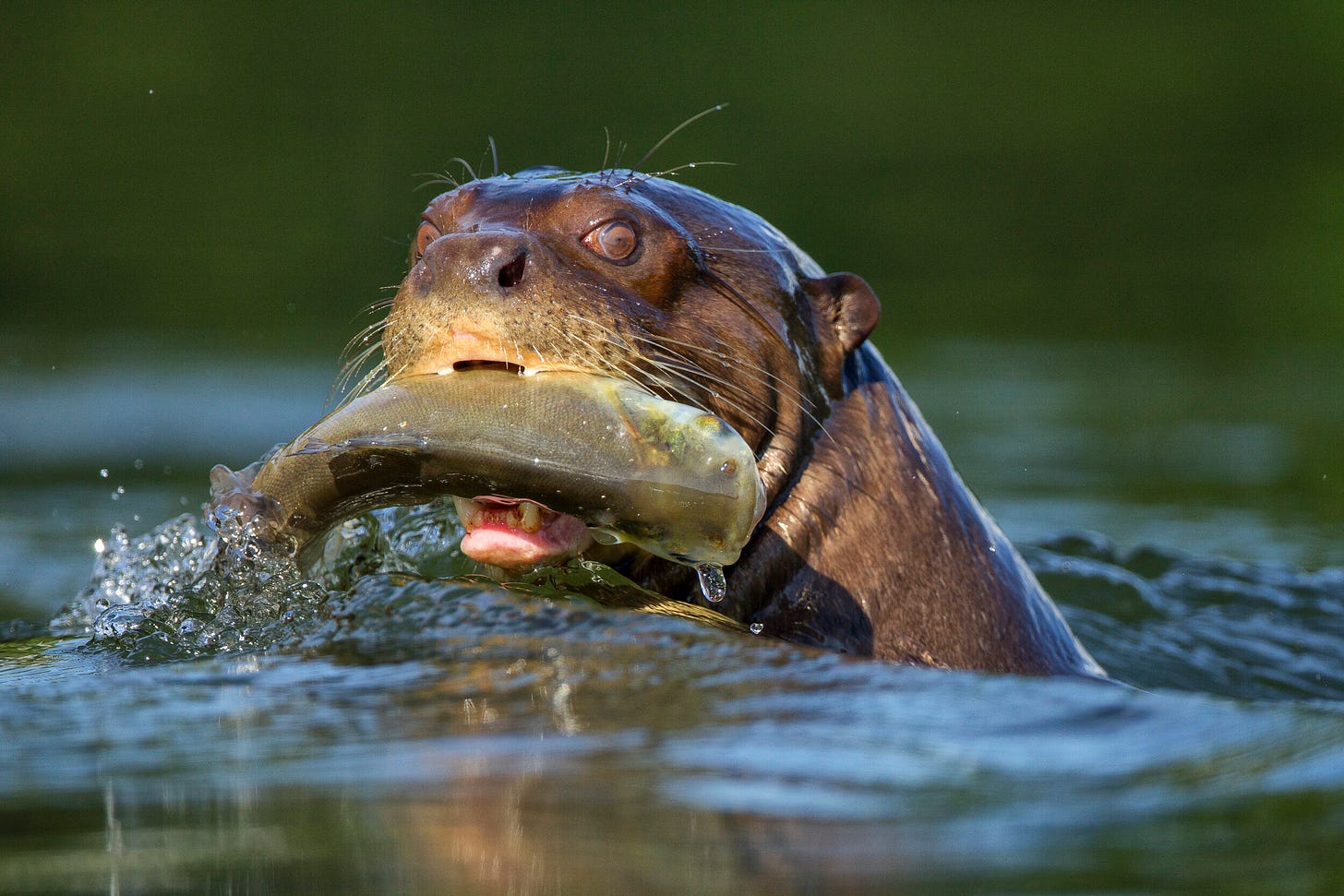
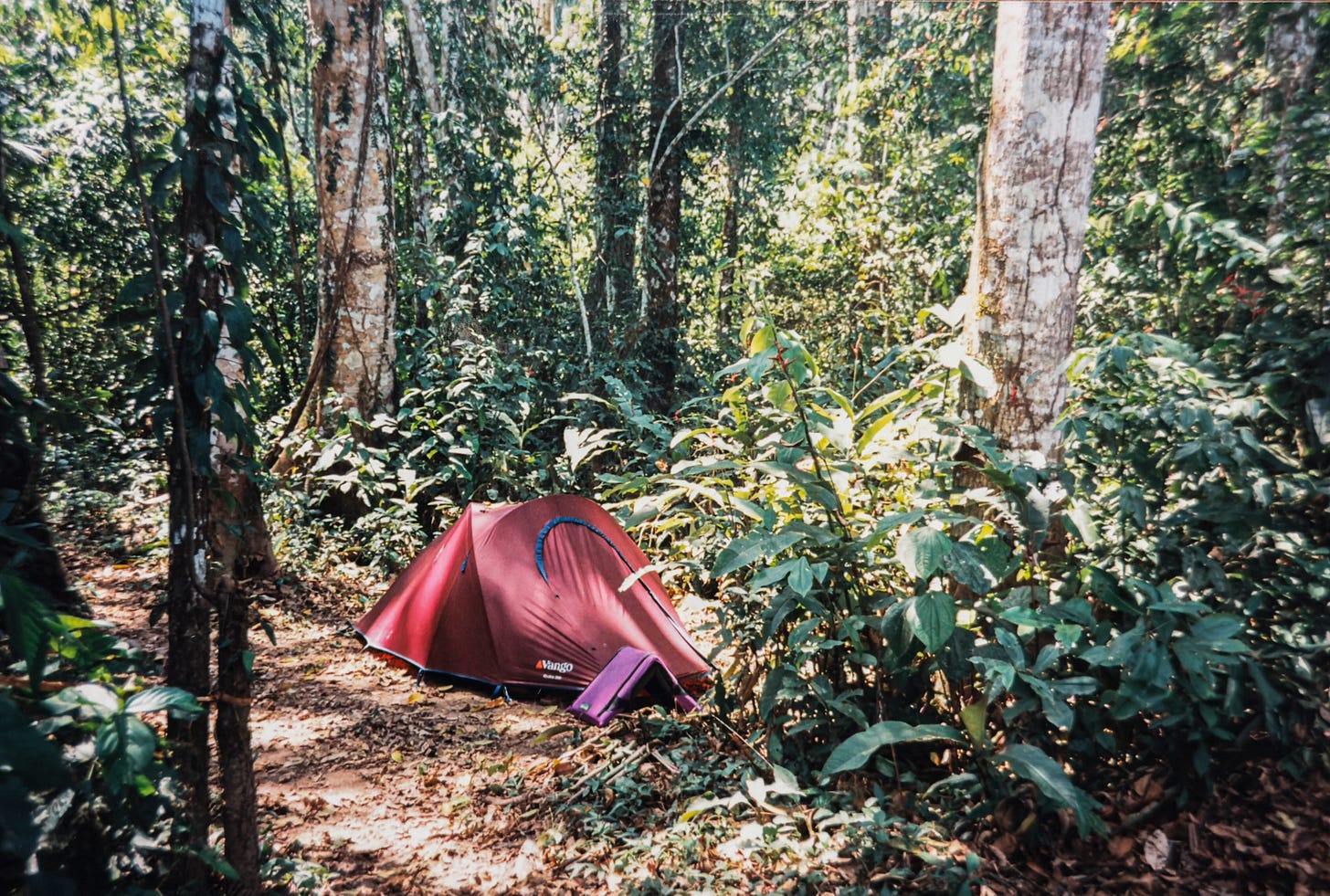
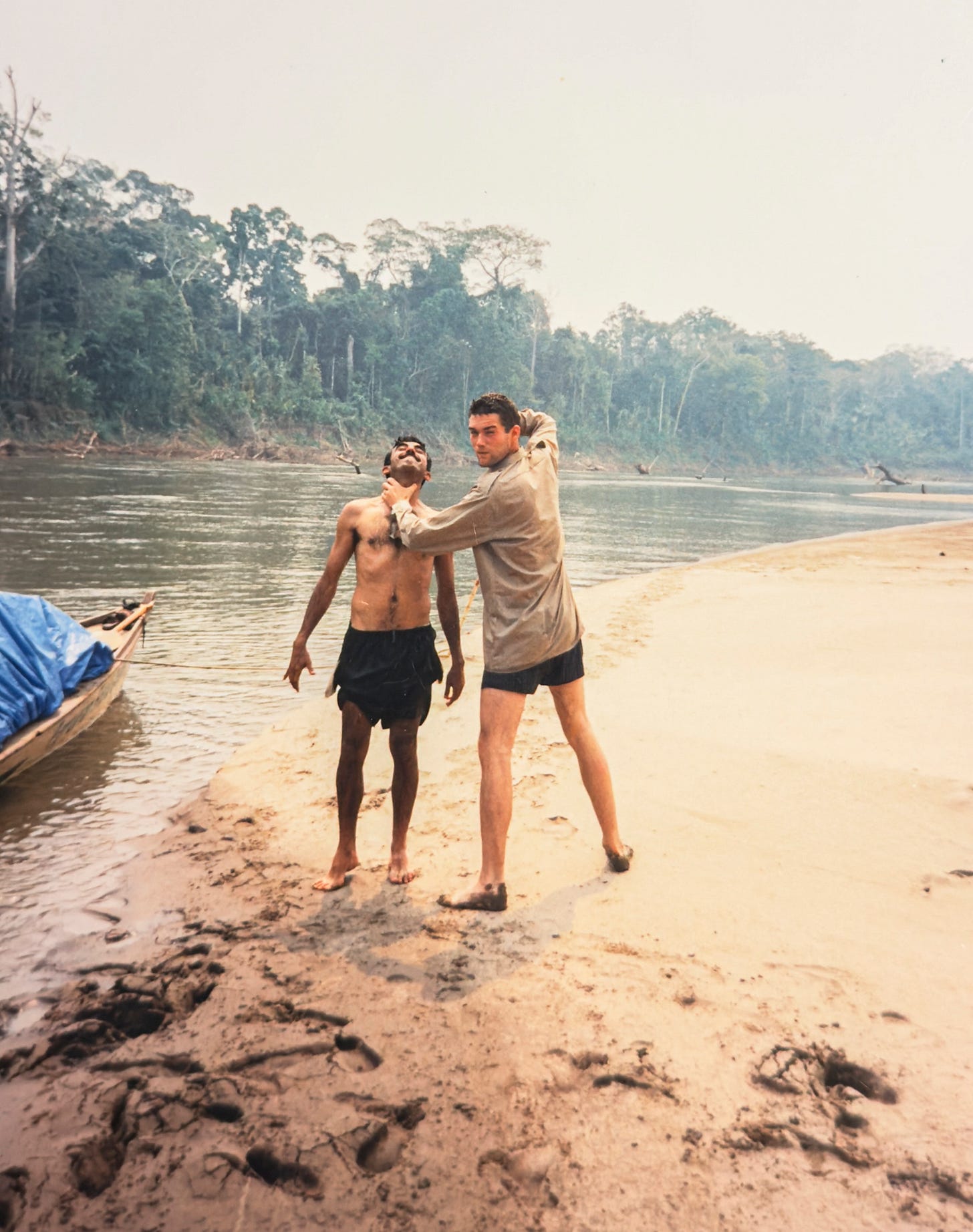
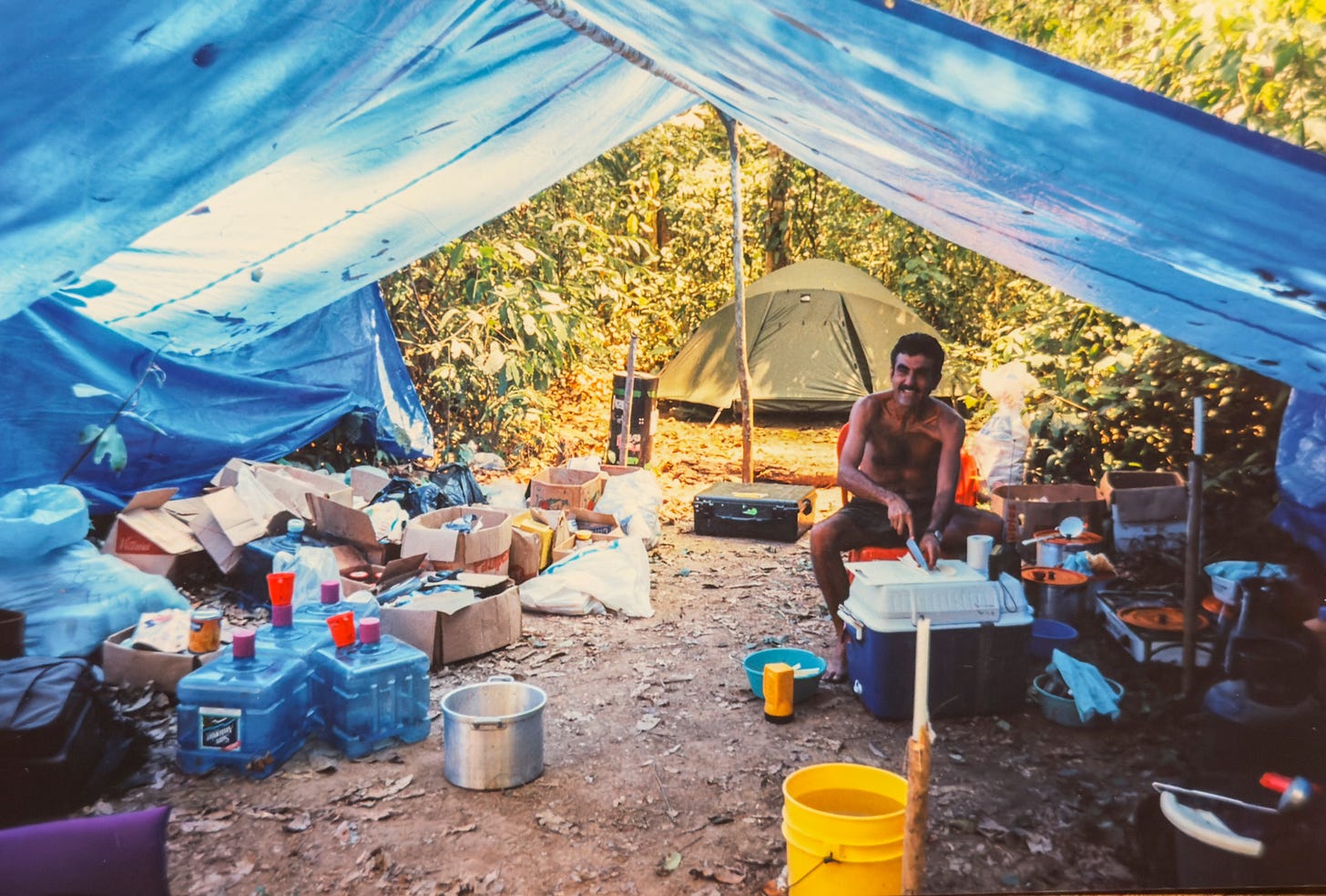
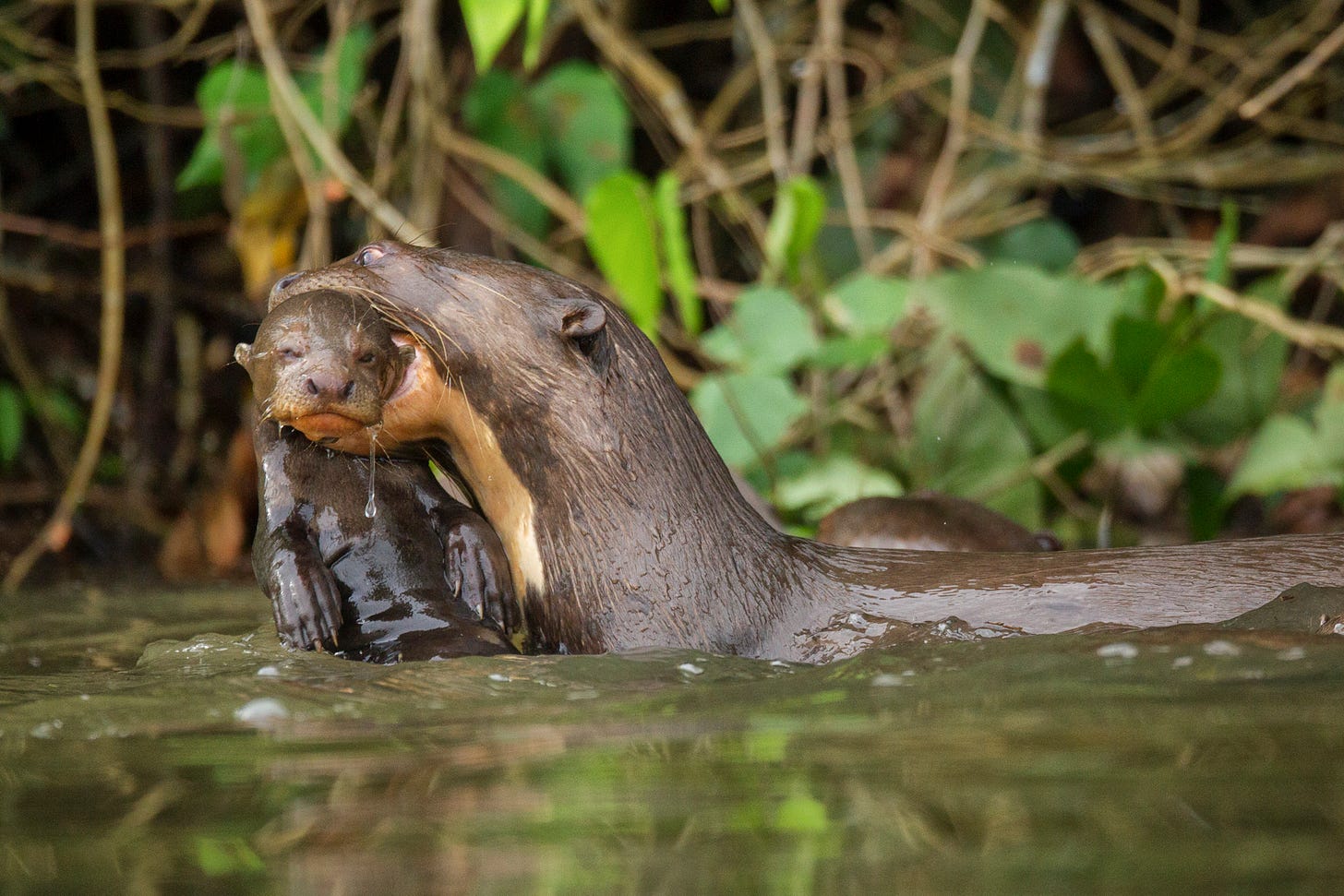
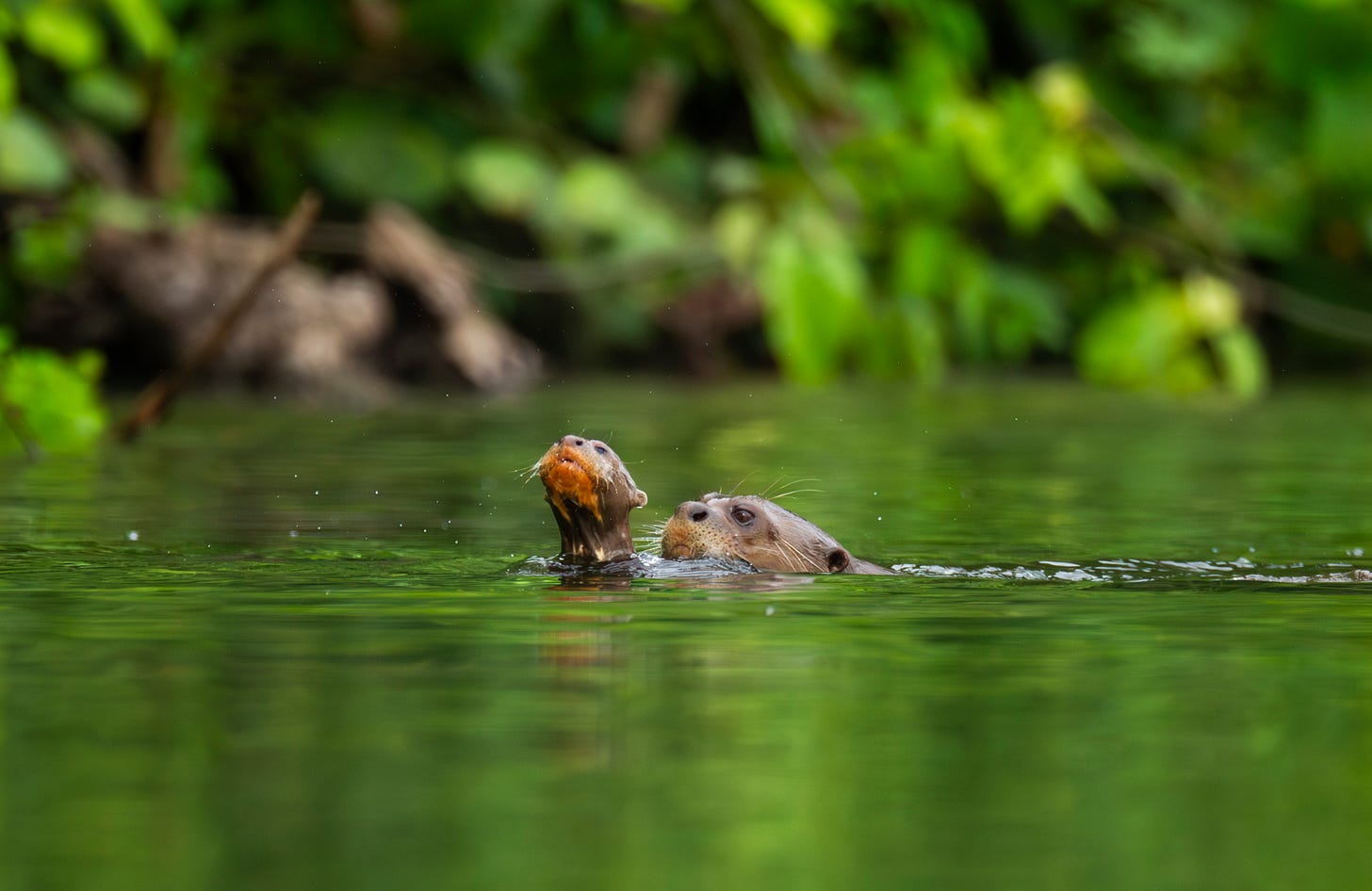
If this was a hardcopy book, I would surely be staying up late to read it all in one sitting. Love these stories. Keep em coming
Can wait to read your halcyon river adventures